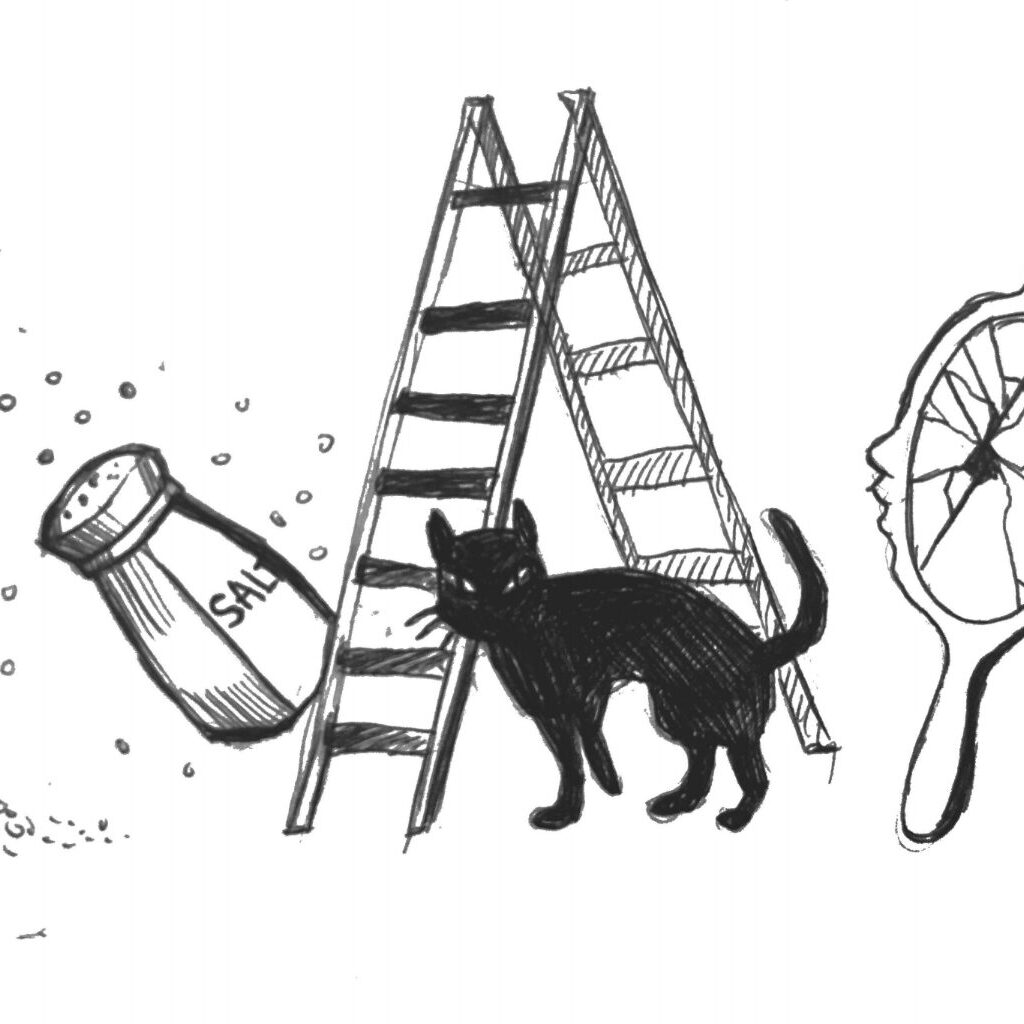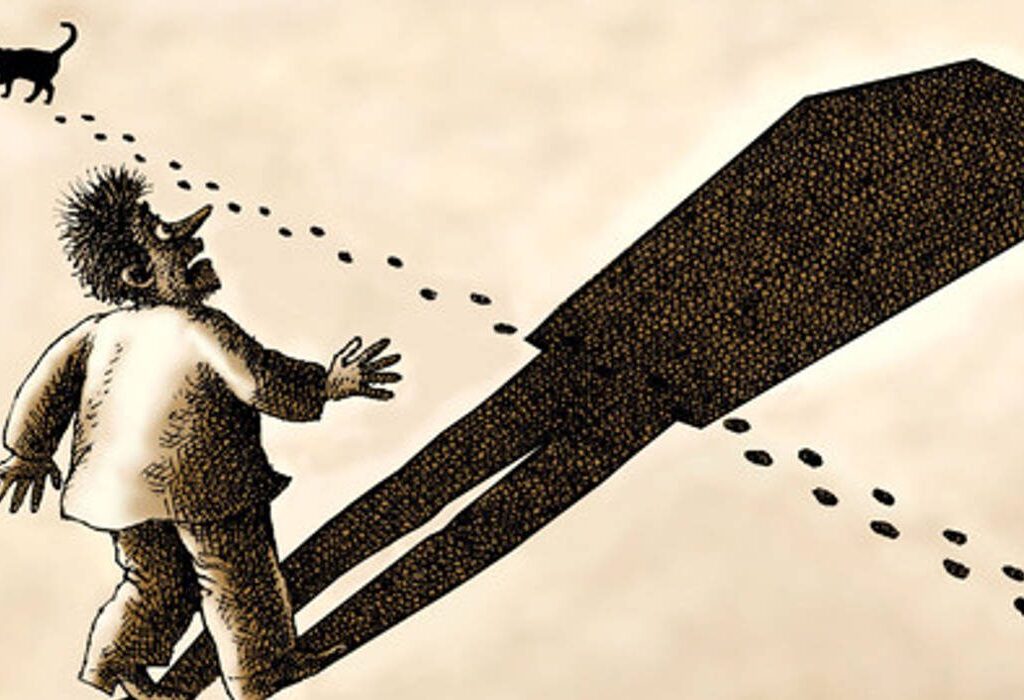
The Power of the Unseen: Unveiling the Psychology of Superstitions
Have you ever crossed your fingers for good luck or avoided stepping on sidewalk cracks for fear of misfortune? If so, you’ve encountered the intriguing world of superstitions. These beliefs and rituals, often seemingly illogical, hold a surprising grip on our minds. But why do we, in an age of reason and science, cling to these age-old traditions? Let’s embark on a journey to explore the fascinating psychology behind superstitions.
Anxiety Antidote: Superstitions as a Coping Mechanism
Imagine yourself facing an important presentation or a crucial exam. Your palms are sweaty, your heart is racing, and anxiety threatens to overwhelm you. In such moments, a lucky charm or a quick knock on wood might offer a sense of comfort and control. Superstitions often act as a psychological crutch, providing a way to manage anxiety and uncertainty in situations beyond our control.
Think of it like this: when faced with an uncertain outcome, performing a specific ritual associated with good luck can create a sense of agency. We feel like we’ve done something to influence the situation, even if it’s just a mental trick. This perceived control can alleviate anxiety and boost confidence.
The Power of Conditioning: Learning Superstitious Behaviors
Superstitions aren’t always born from personal experiences. We can also learn them through observation and conditioning. Imagine a child who sees their parents crossing their fingers before an important event and experiences a positive outcome. The child might associate the act of crossing fingers with good luck, forming their own superstitious belief.
Similarly, cultural influences play a significant role. Certain superstitions are deeply ingrained in traditions and passed down through generations. Seeing others engage in these rituals can subconsciously reinforce the belief in their effectiveness.

The Confirmation Bias Trap: Why Superstitions Persist
So, you perform a superstition and experience a positive outcome. This strengthens your belief in its power. However, what about the times your superstition fails? Here’s where the human mind’s tendency towards confirmation bias comes into play. We tend to focus on and remember instances that confirm our existing beliefs, while downplaying or forgetting contradictory experiences.
For example, if you wear your lucky socks and win a game, you’ll likely attribute your victory to the socks. But what about the countless times you wore them and lost? Confirmation bias allows us to overlook these instances, perpetuating the belief in our lucky charm.
The Power of Ritual: Superstitions and the Placebo Effect
Superstitions often involve rituals, a series of actions performed in a specific way. The act of performing these rituals itself can have a psychological impact. Rituals can create a sense of focus and preparation, putting us in a more positive and confident state of mind.
This can be linked to the placebo effect, where a belief in a treatment’s effectiveness can lead to actual improvement, even if the treatment itself is inert. Similarly, the act of performing a superstition ritual can trigger a positive mental state, potentially influencing the outcome (or at least our perception of it)
Beyond Luck: Superstitions and Social Bonding
Superstitions aren’t just about individual anxieties and beliefs. They can also serve a social function. Shared superstitions can create a sense of community and belonging. Imagine a group of athletes performing a pre-game ritual together. This shared experience fosters a sense of unity and team spirit.
Similarly, superstitions can be a way to connect with older generations. Sharing childhood lucky charms or family traditions creates a sense of connection and strengthens familial bonds.
A Spectrum of Superstitions: From Mild to Obsessive
It’s important to recognize that superstitions exist on a spectrum. Some people might engage in occasional rituals for lighthearted fun, while others might experience obsessive-compulsive behaviors related to superstitions. If these behaviors begin to interfere with daily life or cause significant distress, it’s crucial to seek professional help.
The Evolution of Superstitions: Adapting to a Modern World
The landscape of superstitions is constantly evolving. While some traditional beliefs persist, new superstitions emerge alongside technological advancements. For instance, some people might avoid walking under ladders or spilling salt, while others might avoid opening an umbrella indoors for fear of bad luck.
These adaptations highlight the enduring human desire to find meaning and control in an uncertain world, even as the specific fears and anxieties associated with them change over time.

Conclusion: Embracing the Quirks of the Human Mind
Superstitions offer a fascinating glimpse into the workings of
the human mind. They reveal our inherent anxieties, our desire for control, and our capacity for ritual and belief. While they may seem illogical at times, they serve a purpose, providing comfort, fostering a sense of community, and even boosting confidence in unpredictable situations.
Ultimately, the decision to engage in superstitions is a personal one. As long as they remain harmless and don’t become all-consuming, they can add a touch of whimsy and intrigue to our lives.
Here’s a reminder: the true power lies not in the superstition itself, but in the belief system it reinforces – the belief that we can navigate an uncertain world with a little bit of luck and a whole lot of resilience.
Read Similar Posts
- Childhood Habits: Tiny Seeds That Shape Your Adult Life
- The Science Behind Everyday Things: Demystifying Common Phenomena Like Color or Gravity
- Climate Change: Busting Myths and Highlighting Actionable Solutions
- Everyday Habits Hijacking Your Happiness: Unrecognized Threats to Mental Wellbeing
FAQs: Demystifying Superstitions
Do you have lingering questions about the curious world of superstitions? Let’s explore some frequently asked questions:
FAQ 1: Is there any scientific evidence that superstitions actually work?
Scientific studies haven’t found conclusive evidence that superstitions directly influence outcomes. However, the psychological benefits they offer, such as reduced anxiety and increased confidence, can indirectly impact performance or perception of results.
FAQ 2: Is it okay to participate in superstitions even if I don’t believe in them?
Absolutely! Superstitions can be a fun way to connect with traditions or rituals, even if you don’t subscribe to the belief system behind them. As long as they don’t become a source of stress or anxiety, there’s no harm in participating for lighthearted fun.
FAQ 3: How can I break free from a superstition that’s become excessive or bothersome?
If a superstition is causing you distress or interfering with your daily life, it’s time to break free. Gradually expose yourself to the situations you fear without performing the ritual. Challenge negative thoughts associated with the superstition and focus on building confidence in your own abilities. Consider seeking help from a therapist if you struggle to overcome these anxieties on your own.
FAQ 4: What are some interesting cultural superstitions from around the world?
The world is brimming with diverse superstitions! In Japan, spilling sake is considered bad luck, while breaking a mirror is believed to bring seven years of misfortune in many cultures. Exploring these cultural beliefs can be a fascinating way to learn about different traditions and perspectives.
FAQ 5: Can new superstitions emerge in the modern world?
Absolutely! The human desire for meaning and control remains constant, even as anxieties and fears evolve. New superstitions might arise around technology, like avoiding texting while walking under a ladder (a modern twist on the traditional fear). The future holds endless possibilities for new superstitions to take root in our ever-changing world.
By understanding the psychology behind superstitions, we can appreciate their role in human behavior and navigate them in a healthy way. Remember, a little bit of superstition can add a touch of charm to life, reminding us that even in an age of reason, a dash of mystery and tradition can still hold a powerful sway over our minds.

